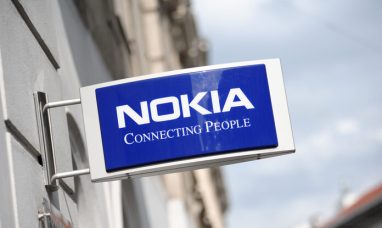After disappointing fourth-quarter 2022 results, shares of
) dropped more than 3% in after-hours trading on February 28. The US dollar’s strength, cost inflation due to rising energy prices, notably in EMEA, ingredient and other input cost inflation, and co-packing fees all had a negative impact on earnings despite the energy drink category’s successful global expansion.
We observe that Monster stock has plunged 2.2% over the last three months vs a 4.1% loss for the sector.
Monster Beverage’s earnings of 57 cents per share fell 4.9% year over year and behind the 61-cent Consensus Estimate.
Although net sales of $1,513 million were up 6.2% year over year, they fell short of the $1,589 million Consensus Estimate. Net sales were reduced by $81.9 million in the reported quarter due to unfavorable currency translations. Net sales increased by 11.9% when the currency was taken into account.
Around 36% of total net sales, or $542.5 million, were made to consumers outside of the United States, a 6.8% increase. Sales to consumers outside of the United States increased by 22.9% on a currency-adjusted basis.
Segmental Results
Monster Energy Drinks: The segment features Monster Energy beverages as well as True North Pure Energy Seltzers and Reign Complete Body Fuel high-performance energy drinks. Net revenues for the division rose 2.6% on a yearly basis to $1.4 billion. Sales for the segment were affected negatively by unfavorable currency rates by $76.9 million. On a currency-adjusted basis, the segment’s net sales increased by 8.3%.
Strategic Brands: The sector contains a number of energy drink brands that were purchased from Coca-Cola in addition to the reasonably priced energy drink brands. In the fourth quarter, the segment’s net sales rose 41.8% year over year to $93 million. Nonetheless, the segment’s sales were reduced by $5 million due to currency challenges. On a currency-adjusted basis, the segment’s net sales rose by 49.4%.
Alcohol Brands: The segment’s net sales for the fourth quarter were $26.9 million. This figure includes a number of craft beers and hard seltzers that were acquired as part of the CANarchy deal on February 17, 2022.
Other: Net sales fell 23.1% year over year to $4.6 million for the sector, which includes some American Fruits & Flavors products sold to independent third parties (AFF Third-Party Products).
Prices & Margin
The company had a sharp rise in its cost of sales, which resulted in a drop in gross profit and gross margin percentage. The cost of sales increased by 11% year over year to $728.6 million. Higher logistical costs, adverse geographic and product sales, and other factors were mostly to blame for the rise in the cost of sales. Increased costs for ingredients and other inputs, such as secondary packaging materials and co-packing fees, have a negative impact on sales expenses.
The company’s fourth-quarter 2022 gross margin decreased by 210 basis points (bps) to 51.8% as a result of higher ingredient and other input costs, a geographic and product mix that was less profitable, and higher logistical costs, which were somewhat offset by pricing actions. The indicator went up sequentially as a result of pricing changes and a recovery in the supply chain.
Operational costs increased by 10% annually to $390 million. The increase is the result of increased personnel costs, higher warehousing and other logistical charges, and higher general and administrative costs.
Operating costs as a proportion of sales increased 90 basis points (bps) to 25.8%, but the indicator declined 310 basis points over the previous three years. Increased distribution costs, which were brought on by higher charges for storage and other logistical services, were the main cause of higher operating expense rates. Selling expenses as a proportion of net sales decreased to 9.6%, a 30 bps year-over-year decrease and a 270 bps three-year decrease.
Distribution costs as a share of net sales went up 10 basis points to 5% and 150 basis points over the course of three years. The measure of general and administrative costs as a proportion of net sales increased 100 basis points year over year while falling 200 basis points on a three-year basis to 11.1%.
Operational income of $394.4 million decreased 4.5% year over year due to greater operating expenses and a fall in gross margin. In the reported quarter, the operating margin decreased by 290 basis points to 26.1%.
Other Financials
By the conclusion of the fourth quarter of 2022, Monster Beverage had $7,025 million in total stockholders’ equity and $1,307.1 million in cash and cash equivalents. As of December 31, 2022, short-term investments totaled $1,362.3 million, while long-term investments were $61.4 million.
In the quarter under review, the company repurchased 2.3 million shares for a total cost of $201.6 million, or an average price of $89.10 per share. It had $682.8 million left over from the previously authorized share repurchase plan as of Nov. 3, 2022. The business has approved a share repurchase program that will allow it to buy back shares worth up to an extra $500 million.
A 100% stock dividend will result from the company’s announcement of a 2-for-1 split of its common stock. One additional share of common stock will be given to each stockholder of record as of March 13, 2023, and it will be delivered after the market closes on March 27, 2023.
Commercial Developments
In the first half of 2023, the corporation started raising prices. In the fourth quarter of 2022, it also kept expanding the brand’s distribution across home and foreign markets. MNST implemented a 6% market-wide price hike in the United States on September 1, 2022, and will do the same for its 24-ounce line on April 1, 2023.
Also, price increases were introduced in some foreign markets in the second half of 2022. Additional price increases will be implemented in some international markets in the first half of 2023 using a phased method.
Along with the launch of Monster Energy Ultra Strawberry Dreams, Monster (stylized) Reserve Kiwi Strawberry, Monster Energy Nitro Cosmic Peach, and Java Monster Caffe Latte in early February 2023, MNST also introduced Monster Energy Zero Sugar at retail in the United States in January 2023.
The business also continued the national rollout of Predator India and introduced Monster Rehab Lemon tea in Japan, Monster Ultra Watermelon in Turkey, Monster Ultra Paradise in Vietnam, and Predator in Malaysia during the aforementioned quarter. During 2023, it plans to launch the Predator brand in additional Asian nations.
The Beast Unleashed, the company’s first flavored malt beverage alcohol product, was recently introduced in six states and comes in four flavors. In order to debut nationally by the end of 2023, this product is expected to enter more markets in the second quarter. It is also on schedule with the introduction of Monster Tour Water, a brand of still and sparkling pure unflavored water. Reign Storm, a total wellness energy drink with four flavors, will be introduced by MNST in March 2023.
In the first quarter of 2023, the business began distributing Monster Energy Lewis Hamilton 44 Zero Sugar and the cost-effective energy brand Fury in Egypt as part of a wider pan-EMEA rollout. In the second quarter of 2023, Monster Beverage plans to switch to the Coca-Cola distribution system in the Philippines.
Featured Image: Unsplash @ Erik Mclean









